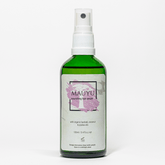Understanding Dandruff: Causes, Treatments, and Prevention Tips
Hey there, beautiful people! If you or someone you know is sporting those charming little flakes known as dandruff, don't stress – it's a common issue that many of us face. The good news is, there are plenty of ways to manage and treat it! In this post, we'll dive into the delightful world of dandruff, explore how to kick it to the curb, and even share some prevention tips.
So, what is dandruff exactly? It's when your scalp decides to throw a little snow party by shedding dead skin. Several party crashers can contribute to this, including:
- Malassezia, a yeast that normally chills on your skin and snacks on your scalp's natural oils
- The amount and composition of sebum produced by your sebaceous glands
- Excessive use and buildup of certain hair care products
- Not giving your scalp a good cleanse frequently enough
- Hormones and immune response
- Other skin conditions such as eczema and psoriasis
These factors can lead to an itchy, dry scalp and those pesky flakes. If you're scratching your head (literally) over these symptoms, you might be dealing with dandruff. Also, note that what might look like dandruff could actually be product buildup or just a dry scalp throwing a tantrum. Styling products that don't play nice together can clump up and resemble dandruff, and flaking plus itchiness might be your scalp begging for moisture.
But don't fret! There are several methods you can try to evict dandruff from your life. For a quick fix, grab an over-the-counter dandruff shampoo with ingredients like salicylic acid, ketoconazole, or selenium sulphide. Use it regularly and let it marinate on your scalp for a few minutes before rinsing it out. If you're into more natural solutions, tea tree oil or apple cider vinegar can also do the trick.
If your dandruff is stubborn, it might be time to consult a medical professional. They might prescribe a medicated shampoo or cream, light therapy, or even oral medication.
In addition to treatments, making a few lifestyle changes can help keep dandruff at bay. A healthy diet rich in vitamins and minerals, along with staying hydrated, can work wonders for your scalp. And contrary to popular myths, dandruff isn't caused by poor hygiene or limited to the winter months – it can strike anyone, anytime.
That said, winter's dry air can make dandruff worse. To combat this, try taking shorter, lukewarm showers instead of hot ones, use a humidifier at home, and don a hat or scarf when braving the cold. These simple tweaks can keep your scalp happy and flake-free all year round.
In conclusion, dandruff might be a pesky party crasher, but it's definitely manageable with the right approach. From over-the-counter remedies to natural solutions, there's an option for everyone. And remember, taking care of your scalp with regular washing and gentle products is the best way to prevent dandruff. Thanks for reading, and happy scalp care
Disclaimer: The information in our articles comes from a wide variety of sources including health publications, certified professionals and online resources. We like to learn about things hair and share interesting tips but this is not medical advice. We believe everyone is unique and different so we recommend that you see a specialist for any diagnosis or treatment of any concerns linked to the information above.







Leave a comment
Please note, comments need to be approved before they are published.